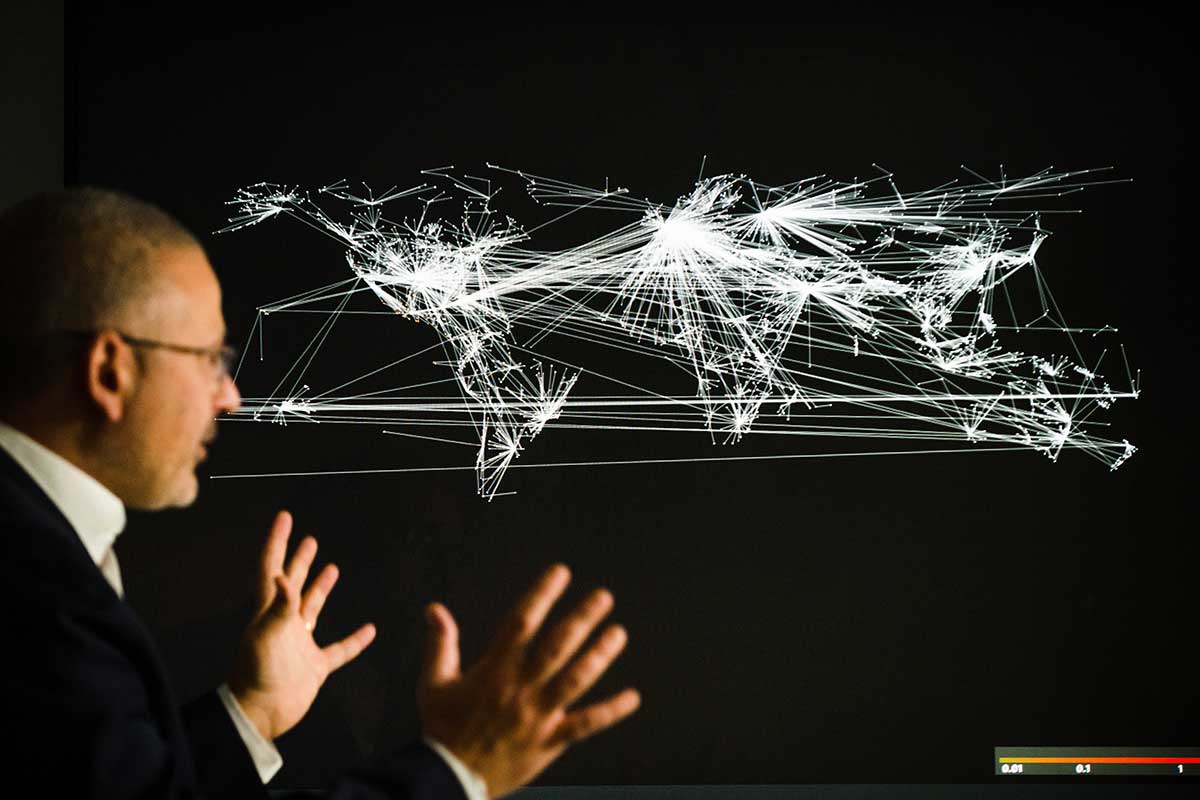
Network Science at Khoury College of Computer Sciences
Building knowledge of the network and systems that connect our world
Research in Network Science at Khoury College uses an interdisciplinary approach that harnesses the tools of computation to study networks that occur in any context: biological and social systems, information networks, technological networks, including the Internet itself, and countless others.
Viewing networks through a computer science research lens brings the capability to analyze and model networks, for instance using a model of a public health or traffic system to test scenarios and improve practices.
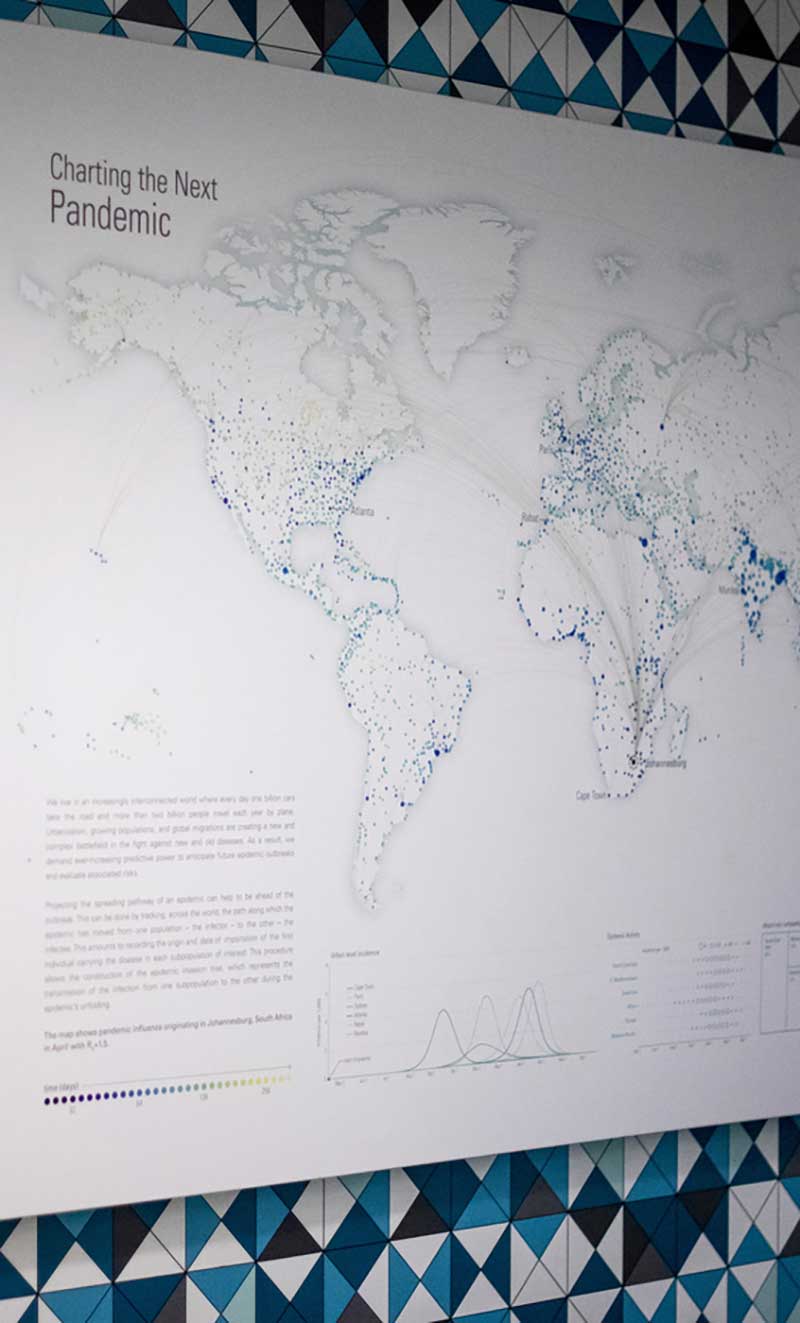

Leading-edge methods for analyzing complex networks
Network science research has significant impact across fields. It is key to building understanding of epidemics and guiding public health responses. Online social networks are a dominant communication mode for billions, and network science is at the heart of making these systems work, as well as addressing issues such as misinformation. Network science provides means for visualizing environmental and ecological systems, providing ways to understand human impact on climate, and to create, and test, potential strategies.
Sample research areas
- Network dynamics and evolution
- Network resilience and evolution
- Network visualization and modeling
- Inference and prediction
- Machine learning on graphs
- Network science in real-world domains
- Data mining and machine learning for complex networks
Domains of interest
- Analysis of technology’s impact on social networks
- Mathematical and data-driven computational models of critical infrastructure, biological data, and information systems
- Analysis and modeling of information and contagion spreading processes
- Mining and exploring heterogeneous information networks
- Social network processes in collaborative decision making and team collaboration
- Control theory for complex networks
- Political and social influence in networks
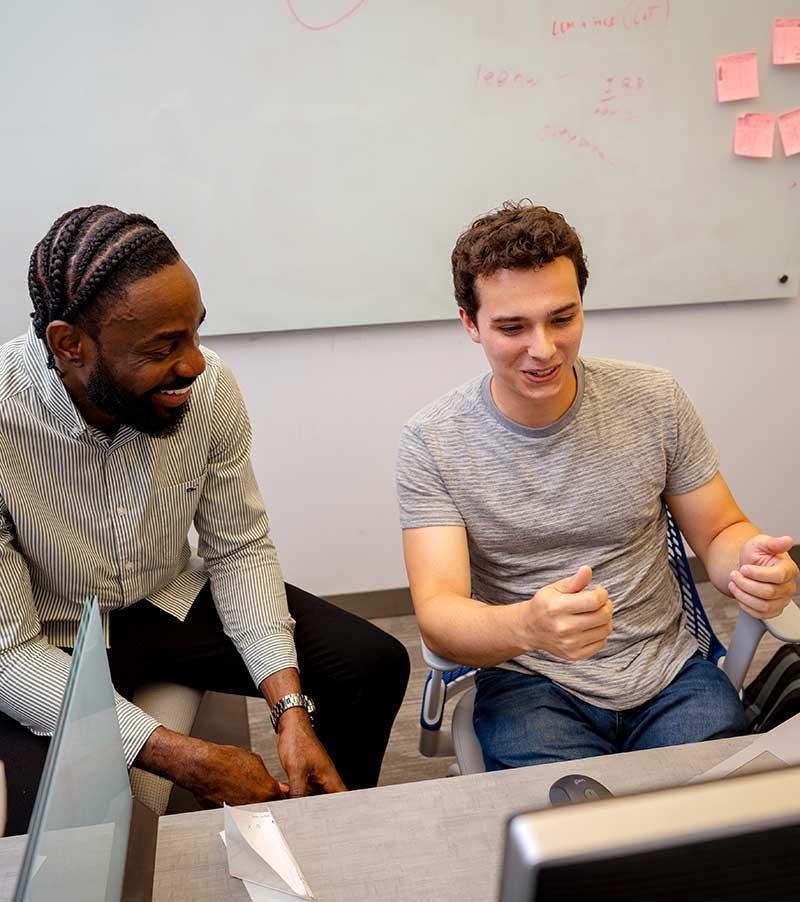
Meet researcher Alan Mislove
Mislove discusses the impact of large-scale platforms and how algorithmic auditing can help broaden understanding.
Current project highlights
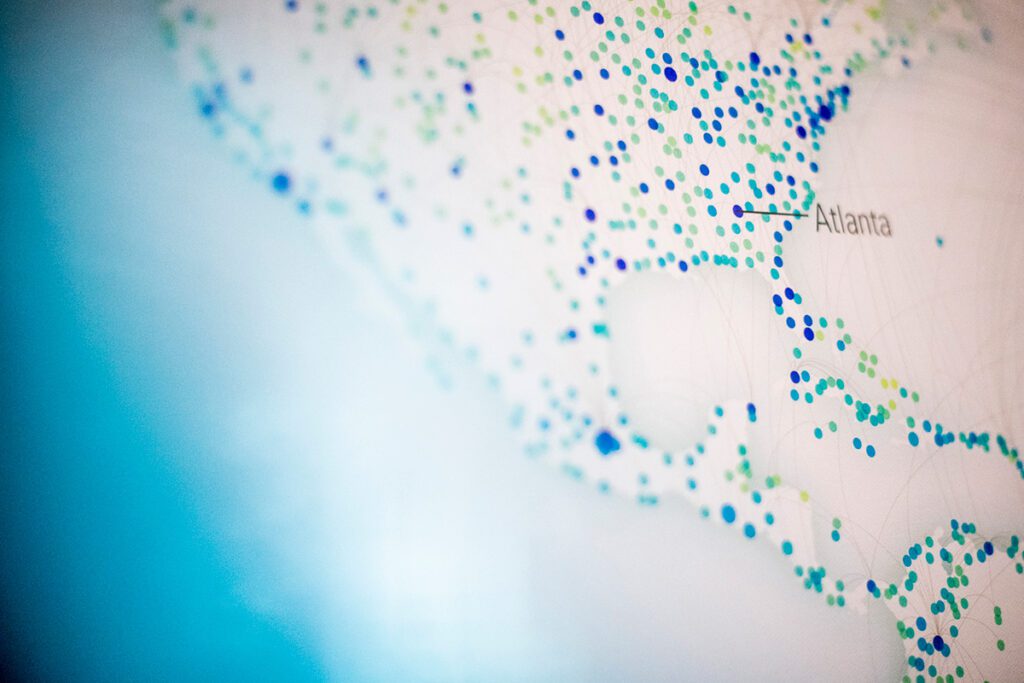
By using network science, Khoury College faculty are discovering shared and contrasting characteristics of asthma and COPD at the molecular level, including shared pathways and genes. This research may lead to better treatments for these common respiratory diseases.
The Network Science Institute at Northeastern has studied how deplatforming of those posting misinformation in response to January 6, 2021, provides insights into the way social media platform policies affect public discourse.
Khoury College faculty are studying the “rabbit hole” effect of YouTube and extremist content. Even after the service’s recommendation algorithm was changed to reduce access to extremist content, researchers uncovered that users still found it via subscriptions or external referrals. Even videos that weren’t directly available on YouTube could be embedded on extremist websites, and recommendation algorithms did little to affect these networks. This has potential impact for policy and practice addressing such content.
Recent research publications
Discovering the genes mediating the interactions between chronic respiratory diseases in the human interactome
Authors: Enrico Maiorino, Seung Han Baek, Feng Guo, Xiaobo Zhou, Parul H. Kothari, Edwin K. Silverman, Albert-László Barabási, Scott T. Weiss, Benjamin A. Raby, Amitabh Sharma
Using network science, Khoury researchers developed a new method Flow Centrality (FC) to identify genes that might act as a bridge between different diseases.
Post-January 6th deplatforming reduced the reach of misinformation on Twitter
Authors: Stefan D. McCabe, Diogo Ferrari, Jon Green, David M. J. Lazer, Kevin M. Esterling
Systems research exploring how Twitter’s decision to ban 70,000 misinformation spreaders after the January 6 Capitol riot led to a decrease in misinformation on the platform.
Forecasting hospital-level COVID-19 admissions using real-time mobility data
Authors: Brennan Klein, Ana C. Zenteno, Daisha Joseph, Mohammadmehdi Zahedi, Michael Hu, Martin S. Copenhaver, Moritz U. G. Kraemer, Matteo Chinazzi, Michael Klompas, Alessandro Vespignani, Samuel V. Scarpino, Hojjat Salmasian
Using large-scale mobile data, providers may be able to forecast individual hospital admissions, test results, and contact patterns in disease outbreaks, results that help health care workers and hospital administrators ensure capacity in times of high demand.
Subscriptions and external links help drive resentful users to alternative and extremist YouTube channels
Authors: Annie Y. Chen, Brendan Nyhan, Christo Wilson
Why changing algorithms did not address the availability of alternative and extremist content on YouTube.
Related labs and groups
Faculty members
-

Albert-László Barabási
Albert-László Barabási is the Robert Gray Dodge Professor of Network Science and a Distinguished University Professor at Northeastern University, director of the Center for Complex Network Research, and a joint appointee within Khoury College and the College of Science. His award-winning work includes the discovery of scale-free networks and the Barabási-Albert model to explain their prevalence in natural, technological, and social systems.
-
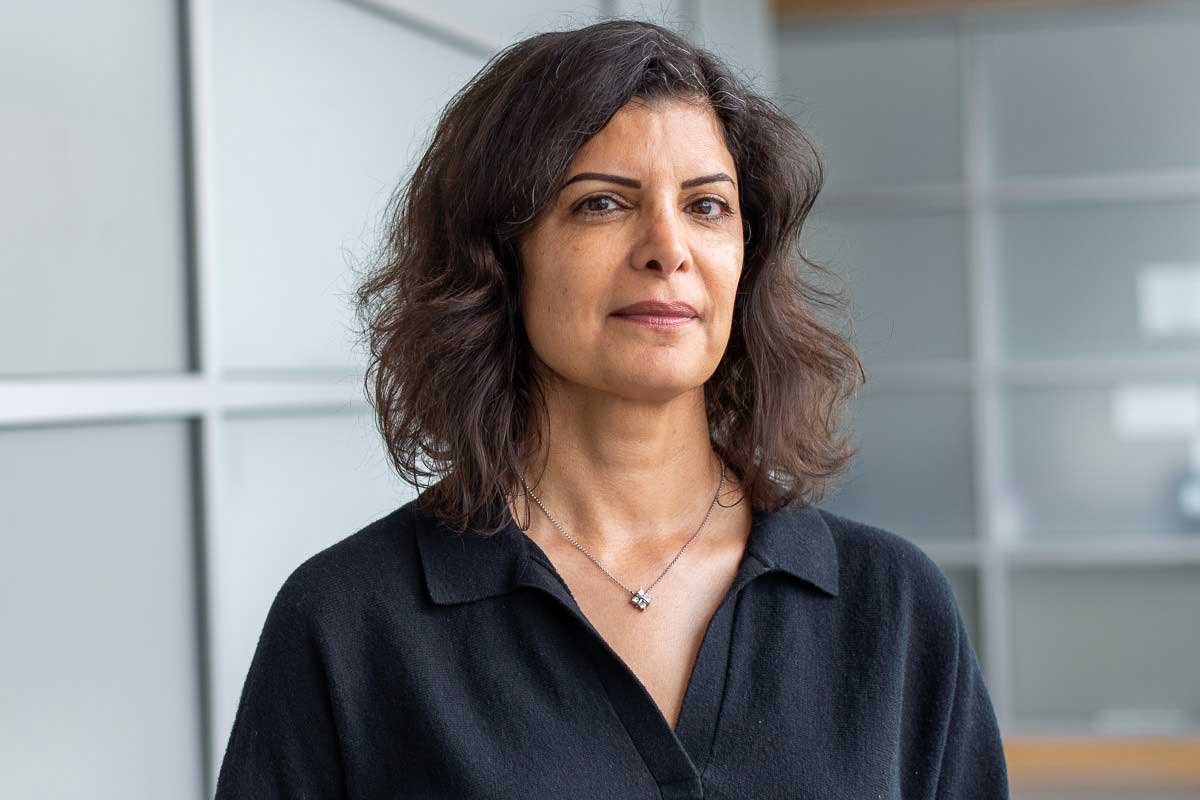
Tina Eliassi-Rad
Tina Eliassi-Rad is the inaugural Joseph E. Aoun professor at Khoury College, as well as an external faculty member at the Santa Fe Institute and the Vermont Complex Systems Center. Her research at the intersection of data mining, machine learning, and network science has earned her a place as a core faculty member at both Northeastern’s Network Science Institute, and the Institute for Experiential AI.
-

David Lazer
David Lazer is a University Distinguished Professor at Khoury College, jointly appointed with the College of Social Sciences and Humanities. His research investigates misinformation and political communication — especially on social networks — through the lens of computational social science.
-
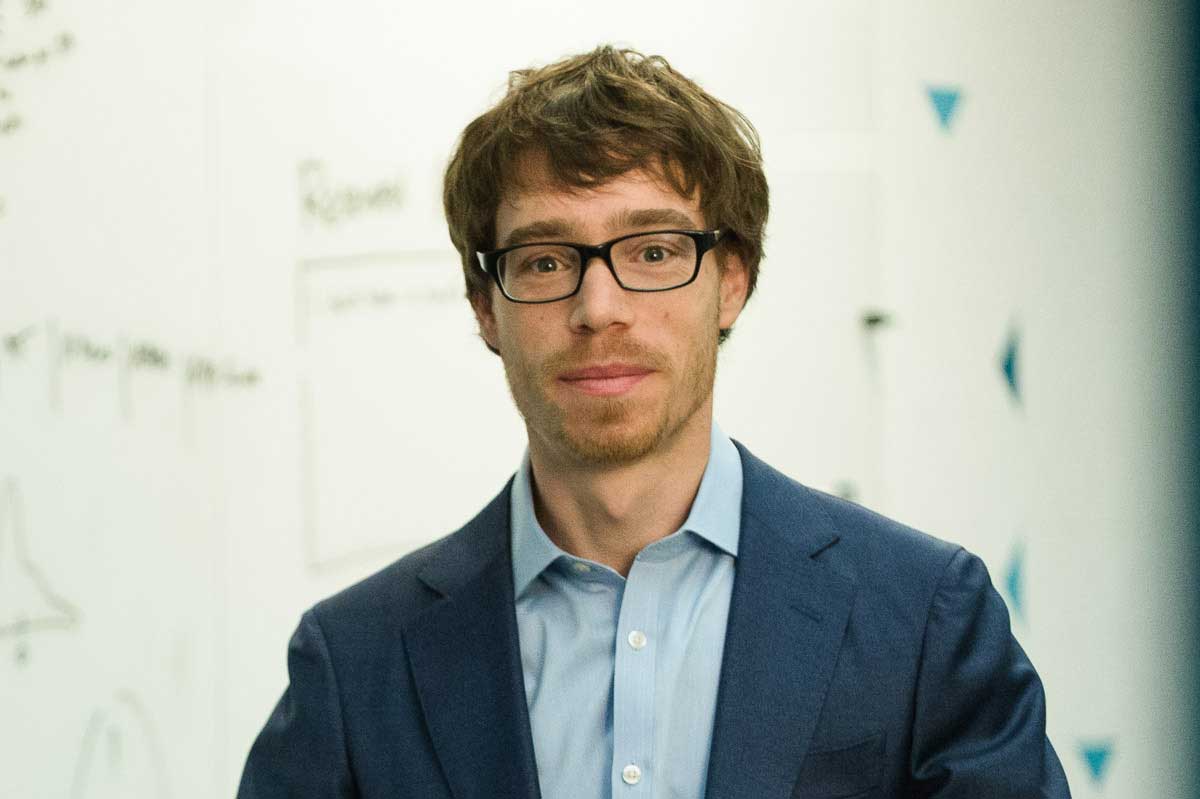
Christoph Riedl
Christoph Riedl is an associate professor at Khoury College, jointly appointed with the D’Amore McKim School of Business. His work focuses on optimal team design and management, the impact of social influence and information diffusion on social and economic networks, and the effect those networks have on human collaboration and decision-making.
-
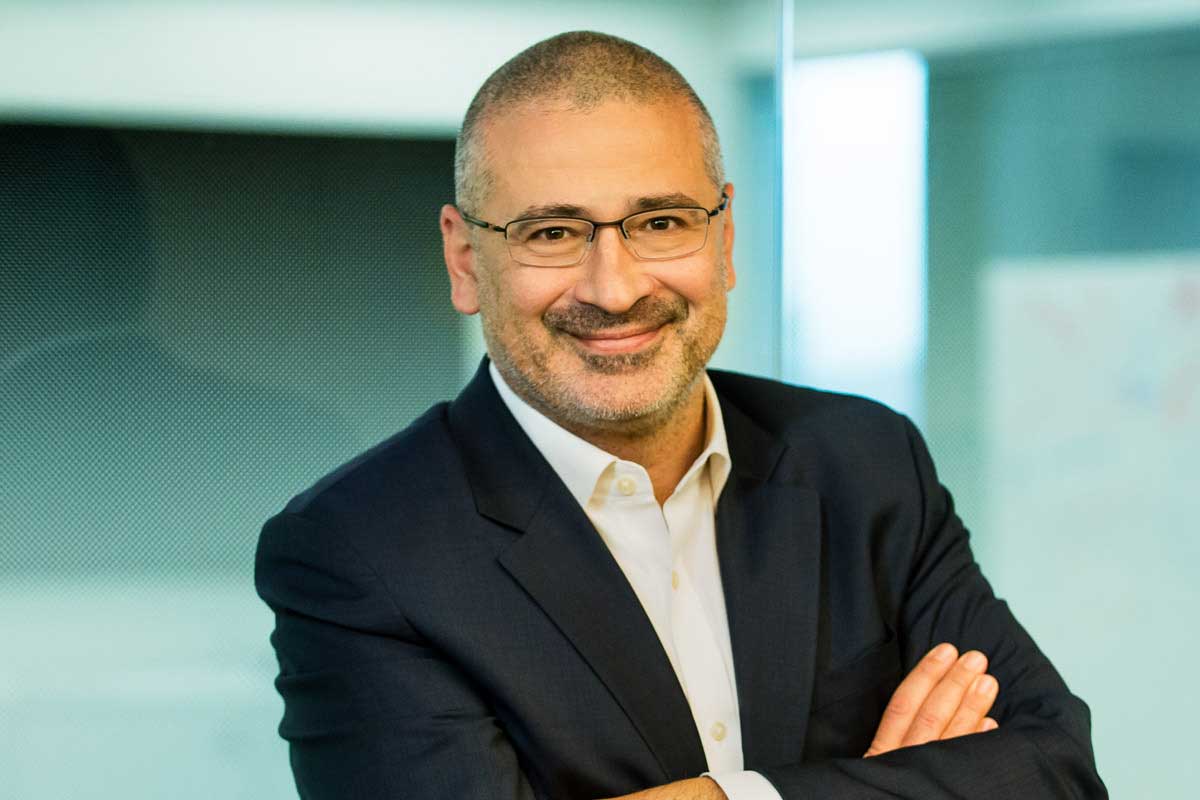
Alessandro Vespignani
Alessandro Vespignani is the Sternberg Distinguished University Professor, and an interdisciplinary appointee between Khoury College and the Bouvé College of Health Sciences. He uses statistical and numerical simulation methods to study the behavior of complex biological, social, and technological networks.